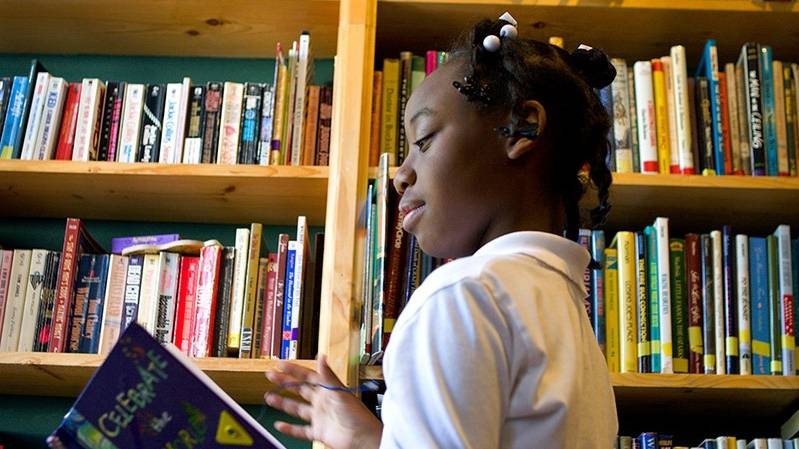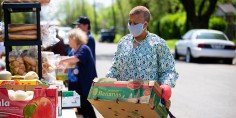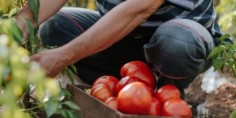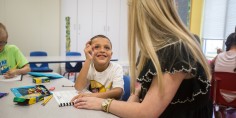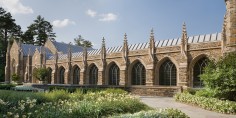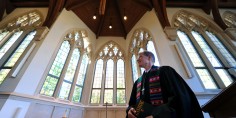If students aren’t learning during the summer, they can lose ground academically — and once children fall back, the gap in achievement can grow with each year.
The Duke Endowment is working with rural United Methodist churches in North Carolina to combat learning loss in their communities through evidence-informed summer literacy programs for rising first- through third-graders. The goals are to improve literacy outcomes for students who are at risk for reading failure and encourage churches to play an effective role in helping children and families. Long-term plans include conducting a rigorous impact evaluation and potentially replicating and scaling the model to help struggling readers in rural areas across the state.
Since the program’s inception, 15 rural churches in 15 counties have participated. Thirteen held camps this year, either virtually or in person, amid the COVID-19 pandemic. As in previous years, students served by the summer literacy programs realized statistically significant improvements in literacy skills. They also saw positive changes related to their attitudes and motivation around reading.
Caroline Parker with EducationNC toured three of the sites to see how they did it and what changed from previous years. She visited Brevard First United Methodist Church the week prior to the start of camp, Cullowhee United Methodist Church on the third day of instruction, and Sparta United Methodist Church during the last week of camp. The common thread? Dedication to doing what is best for students.
Her story is below. (The full version can be found here).
Brevard United Methodist
This was Brevard UMC’s first year for the summer literacy program, but they had a 40-year education veteran in program director Fay Agar to guide them. Agar ran an Endowment-funded summer literacy camp in West Nash last year, so she was not new to the program.
There was a 5 to 1 student-to-teacher ratio, as children were divided into rooms to keep group numbers low. The camp had specific drop-off protocols, such as taking temperatures, asking parents if anyone felt sick, and more. Brevard First UMC offered transportation, and volunteers drove buses.
Computers were used for two assessments: a growth assessment and a weekly formative assessment. The teachers changed their lesson plans weekly for each student based on the formative assessment. Agar pointed to Lyrics 2 Learn, a program that uses music to help with literacy, and Reading from A to Z, where students can download books with reading comprehension lessons.
Before camp started, she expressed hopefulness: “It won’t be easy, but I think we can rise to the challenge.”

